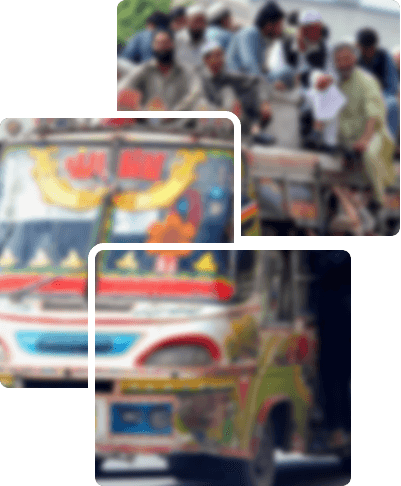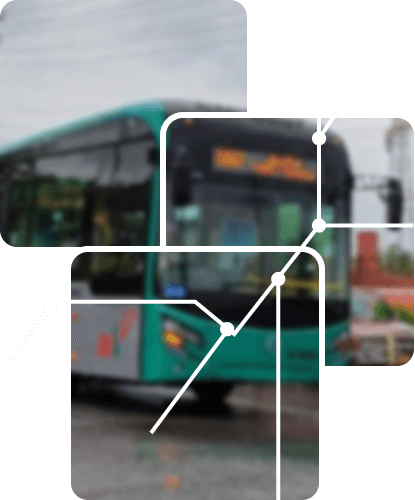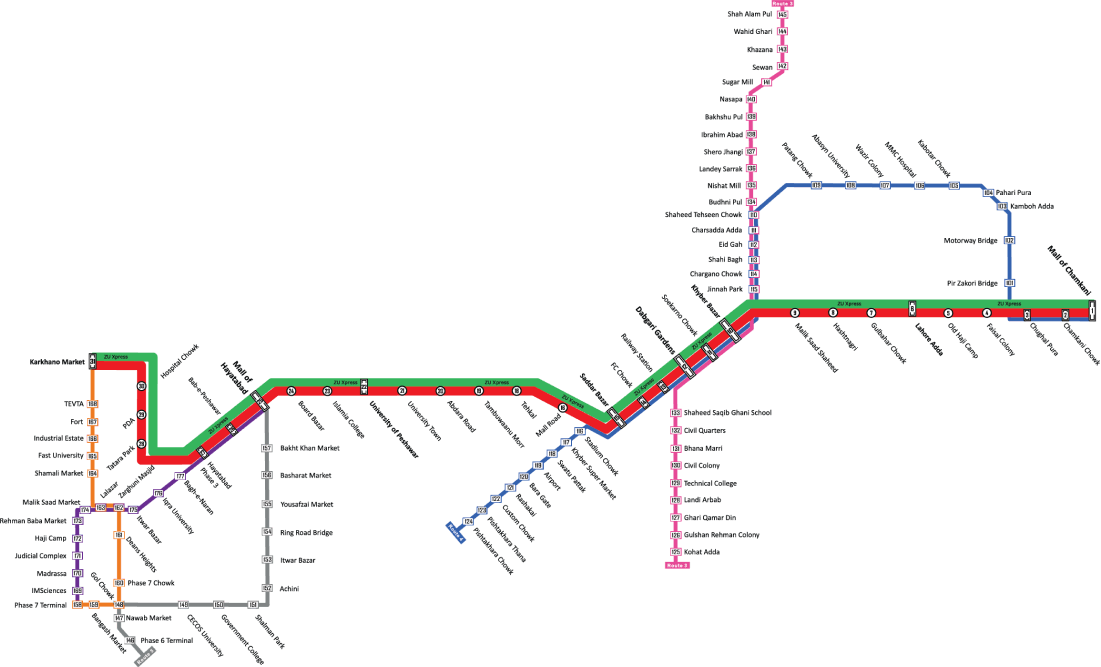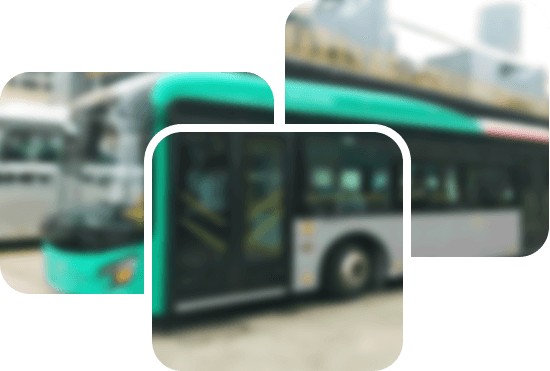Overview
Peshawar, a center of trade and commerce, has a population of 2.2 million people with no proper transportation system to serve the masses. To mitigate the transportation crisis, the Khyber Pakhtunkhwa government decided to provide a cost-efficient, sustainable mass transit system to transform mobility in the provincial capital of KP.
Under LMKR and its partners, an intelligent transport system was designed and successfully deployed in the city. The system, launched in 2020, was serving a daily ridership of more than 220,000 people in 2021.
Challenge
Peshawar has a population of 2.2 million, increasing at a rate of 3.2% per annum. With the present growth trends, the population is expected to grow enormously in the next decade. This rapid growth is putting significant pressure on the city’s creaking transport infrastructure.
Like any other city in Pakistan, Peshawar faced a transportation crisis with no safe and cohesive transport infrastructure. A mix of poorly maintained public transport vehicles, countless private automobiles, and scattered pedestrians resulted in chaotic traffic and terrible pollution for the city. The only means of transportation for the longest time have been Mazda, Hiace, and Suzuki vans, which just add to the chaos and are not suitable for a large percentage of the population, especially women and children.
Challenge

Solution

Solution
To cater to the mobility challenges in Peshawar, KP Government with support from Asian Development Bank, launched a Bus Rapid Transit (BRT) Project for the city. LMKR, along with its partners, was selected to provide the system control equipment and services.
The objective of the project was to provide an affordable, reliable, and customer-friendly transport system to the masses that not just helps in the development of the physical infrastructure of the city but also acts as a catalyst for urban regeneration and growth.
The planned system consists of a 27-kilometer dedicated busway corridor with 30 stations, connecting over 60 kilometers of direct services to local communities
Under the project, the key components were:
- Provision of the specified equipment and software delivered to the full functional and technical requirements
- Installation, testing, and commissioning of the equipment and software
- The operation, maintenance, and other services of the equipment and software commissioned by the contractor
- Delivery of capacity-building training to both employees of the contractor and employees of the employer
- Management and operation of the system control equipment and services for the full period of the contract
BRT Network Map

Benefits
Easy Accessibility
BRT Peshawar is a milestone project of KP, facilitating more than 120,000 commuters daily. Over the last year, it has provided the people who live, work, and visit this city with a world-class transport facility and has enhanced economic activity. The organized route also cuts travel time from east to west of the city from 2 hours to just 45 minutes.
First Class Facilities
The system, which is the first of its kind in KP, gives access to medical care, employment, community resources, and recreational opportunities. It also provides improved waiting facilities and supporting infrastructure for passengers, such as e-ticketing and real-time information about bus schedules. Moreover, the cashless and contactless system not only offers transparency for the ticket process but also significantly reduces the levels of abuse, theft, and corruption.
Automated Fare
As real-time payments and digital payment gateways are gaining more attention worldwide, we ensured a hassle-free system for BRT Peshawar as well. Our automated fare collection system makes collecting and verifying fares significantly simple, more accurate, and safe. It brings a wide range of benefits to the government, transport planners, operators, and commuters.
Scheduling and Dispatching
One of the most common problems of conventional public transport is delays that cause financial loss and stress. BRT Peshawar has the most efficient and robust fleet management system, where a scheduling system ensures the buses are on time and meet customer needs, even during peak hours. Moreover, real-time data on bus location and vehicle status allows us to monitor and provide a seamless journey to passengers from the first to the last mile.
Zu Mobile App
To assist the passengers in real-time, LMKR has developed a Zu Mobile App that acts as a ticket and digital mobile wallet, making your journey cashless and contactless. It includes all the information on maps, routes, and fares, acting as a virtual assistant to make your journey hassle-free.
Integrated Security
We have implemented a multi-layered security system, including intelligent video analytics and video monitoring system that is one-of-a-kind in Pakistan. The system is monitored through a control room that detects any anomalies and helps deter criminal activity of any kind. The 24/7 access control and video monitoring makes BRT Peshawar one of the safest ways to travel around.
Additionally, there are priority facilities for women, the elderly, and people with disabilities. The entire line also has 100% step-free, universal accessibility and is designed to be safe and accessible, with separate waiting rooms, bathrooms, and ticket counters for women.
Zu Peshawar is expected to lead to a 31,000-ton-equivalent reduction in carbon footprint per year. As a means to provide last-kilometer connectivity to the BRT station and stops, a bicycle-sharing system was also included in the project. Thirty bicycle-sharing stations, with a capacity for 300 bicycles and the associated reserve of available parking docks were implemented as an integrated component of the Peshawar BRT system. Zu Bicycles run on zero emissions; a goal the world is collectively trying to achieve.
